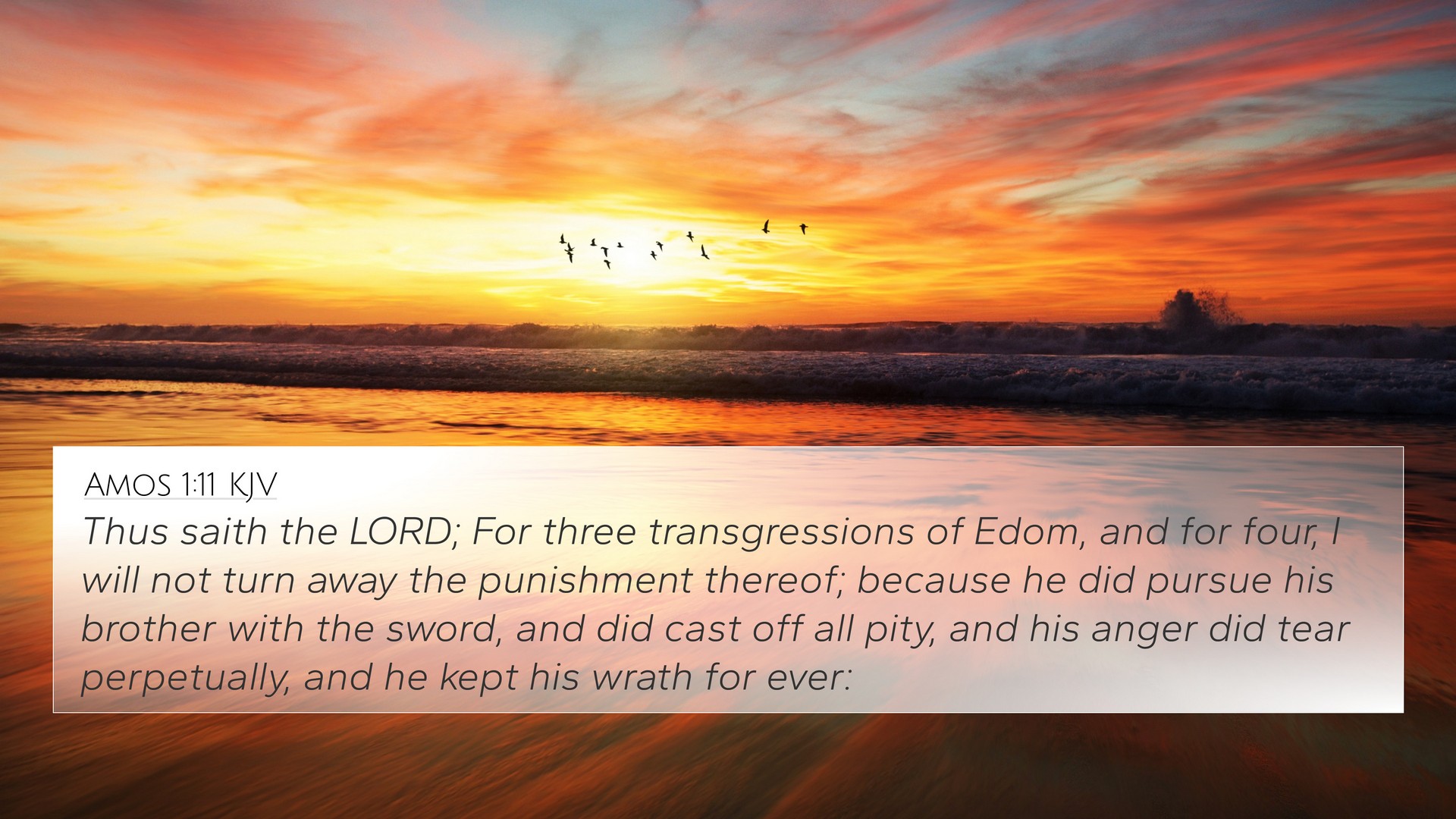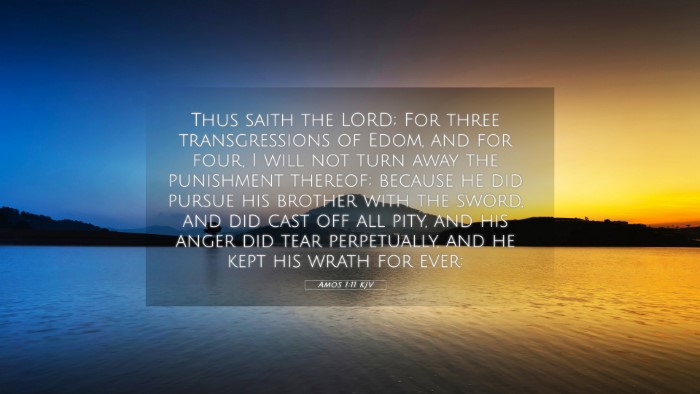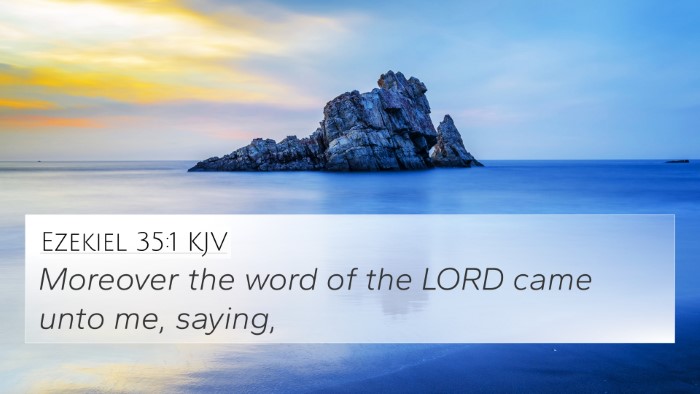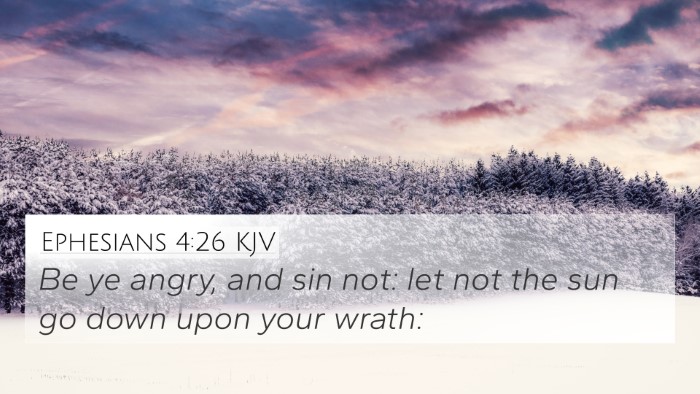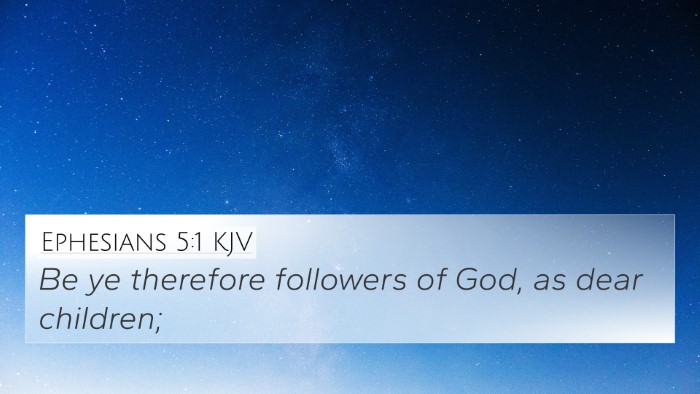Old Testament
Genesis Exodus Leviticus Numbers Deuteronomy Joshua Judges Ruth 1 Samuel 2 Samuel 1 Kings 2 Kings 1 Chronicles 2 Chronicles Ezra Nehemiah Esther Job Psalms Proverbs Ecclesiastes Song of Solomon Isaiah Jeremiah Lamentations Ezekiel Daniel Hosea Joel Amos Obadiah Jonah Micah Nahum Habakkuk Zephaniah Haggai Zechariah MalachiAmos 1:11 Similar Verses
Amos 1:11 Cross References
Thus saith the LORD; For three transgressions of Edom, and for four, I will not turn away the punishment thereof; because he did pursue his brother with the sword, and did cast off all pity, and his anger did tear perpetually, and he kept his wrath for ever:
Uncover the Rich Themes and Topics of This Bible Verse
Listed below are the Bible themes associated with Amos 1:11. We invite you to explore each theme to gain deeper insights into the Scriptures.
Amos 1:11 Cross Reference Verses
This section features a detailed cross-reference designed to enrich your understanding of the Scriptures. Below, you will find carefully selected verses that echo the themes and teachings related to Amos 1:11 KJV. Click on any image to explore detailed analyses of related Bible verses and uncover deeper theological insights.
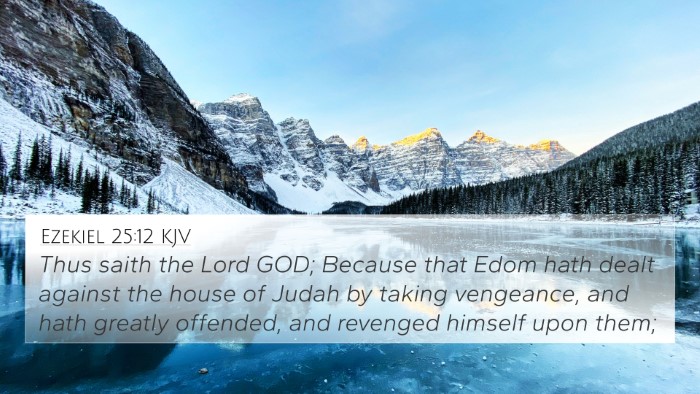
Ezekiel 25:12 (KJV) »
Thus saith the Lord GOD; Because that Edom hath dealt against the house of Judah by taking vengeance, and hath greatly offended, and revenged himself upon them;

2 Chronicles 28:17 (KJV) »
For again the Edomites had come and smitten Judah, and carried away captives.
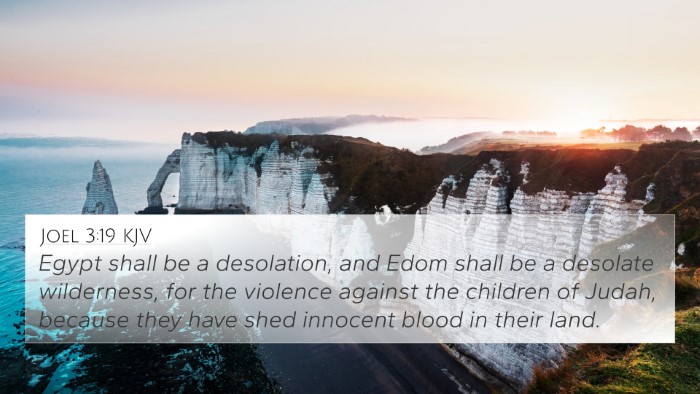
Joel 3:19 (KJV) »
Egypt shall be a desolation, and Edom shall be a desolate wilderness, for the violence against the children of Judah, because they have shed innocent blood in their land.
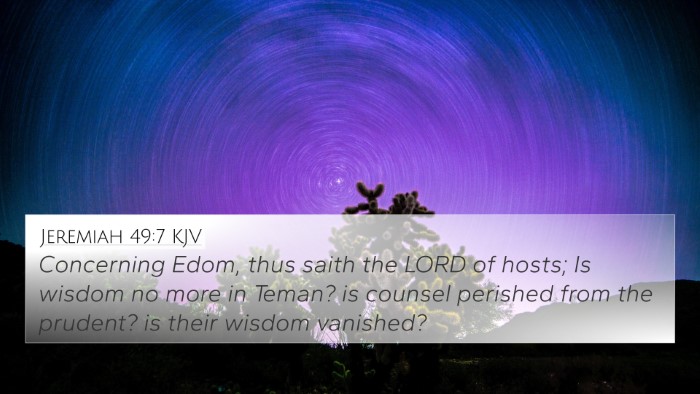
Jeremiah 49:7 (KJV) »
Concerning Edom, thus saith the LORD of hosts; Is wisdom no more in Teman? is counsel perished from the prudent? is their wisdom vanished?
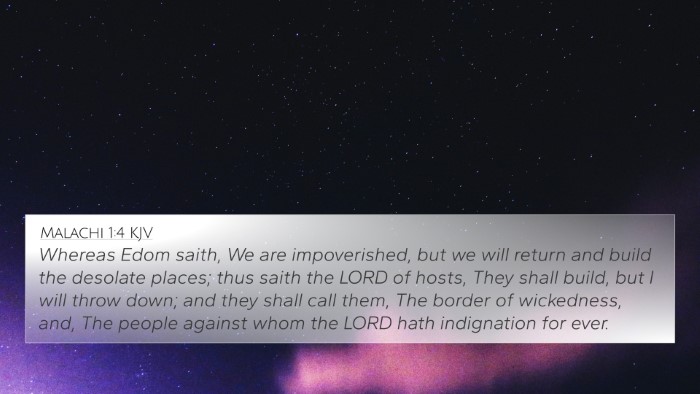
Malachi 1:4 (KJV) »
Whereas Edom saith, We are impoverished, but we will return and build the desolate places; thus saith the LORD of hosts, They shall build, but I will throw down; and they shall call them, The border of wickedness, and, The people against whom the LORD hath indignation for ever.
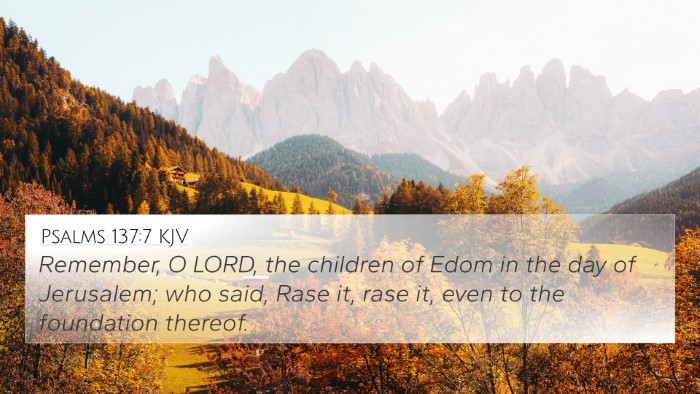
Psalms 137:7 (KJV) »
Remember, O LORD, the children of Edom in the day of Jerusalem; who said, Rase it, rase it, even to the foundation thereof.
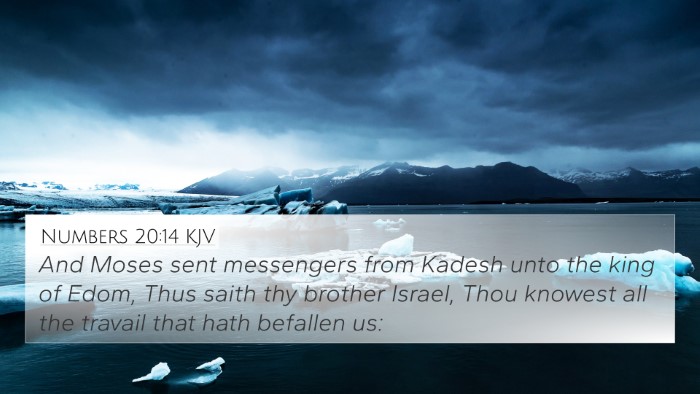
Numbers 20:14 (KJV) »
And Moses sent messengers from Kadesh unto the king of Edom, Thus saith thy brother Israel, Thou knowest all the travail that hath befallen us:
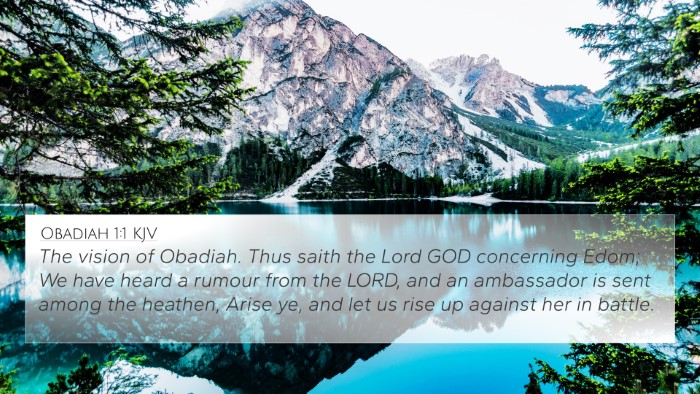
Obadiah 1:1 (KJV) »
The vision of Obadiah. Thus saith the Lord GOD concerning Edom; We have heard a rumour from the LORD, and an ambassador is sent among the heathen, Arise ye, and let us rise up against her in battle.
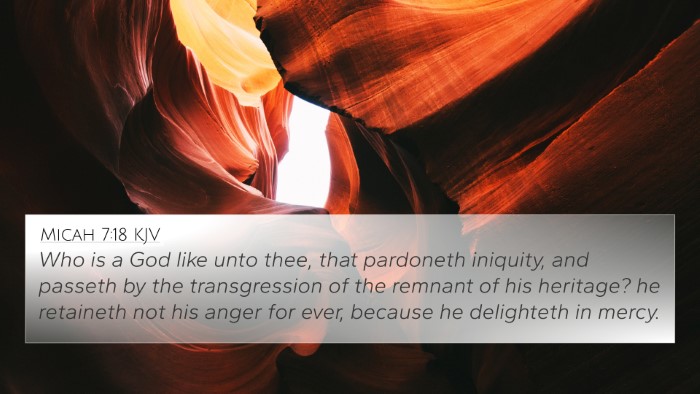
Micah 7:18 (KJV) »
Who is a God like unto thee, that pardoneth iniquity, and passeth by the transgression of the remnant of his heritage? he retaineth not his anger for ever, because he delighteth in mercy.
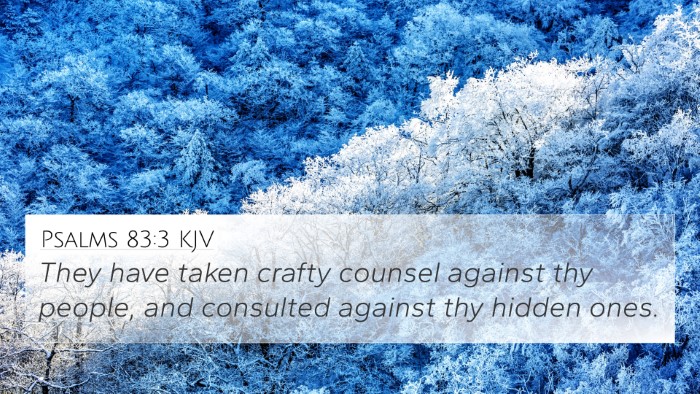
Psalms 83:3 (KJV) »
They have taken crafty counsel against thy people, and consulted against thy hidden ones.
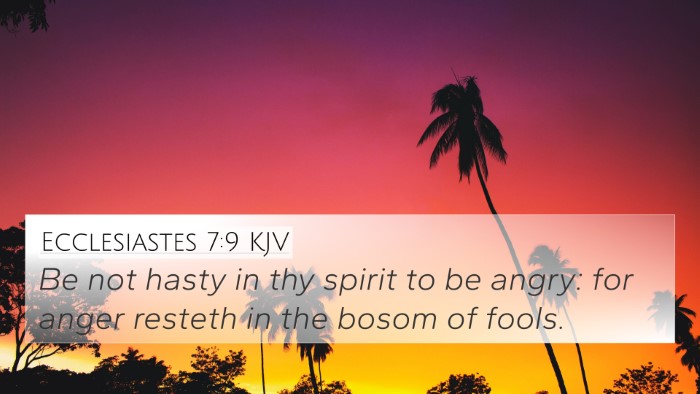
Ecclesiastes 7:9 (KJV) »
Be not hasty in thy spirit to be angry: for anger resteth in the bosom of fools.
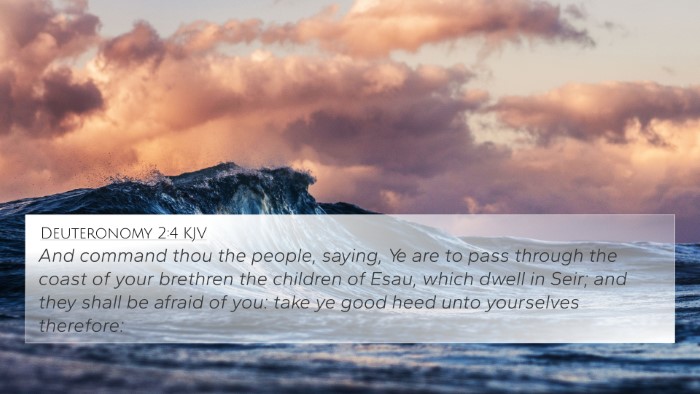
Deuteronomy 2:4 (KJV) »
And command thou the people, saying, Ye are to pass through the coast of your brethren the children of Esau, which dwell in Seir; and they shall be afraid of you: take ye good heed unto yourselves therefore:
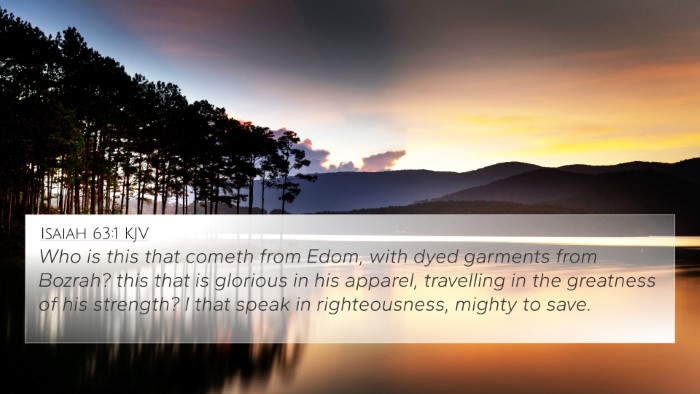
Isaiah 63:1 (KJV) »
Who is this that cometh from Edom, with dyed garments from Bozrah? this that is glorious in his apparel, travelling in the greatness of his strength? I that speak in righteousness, mighty to save.
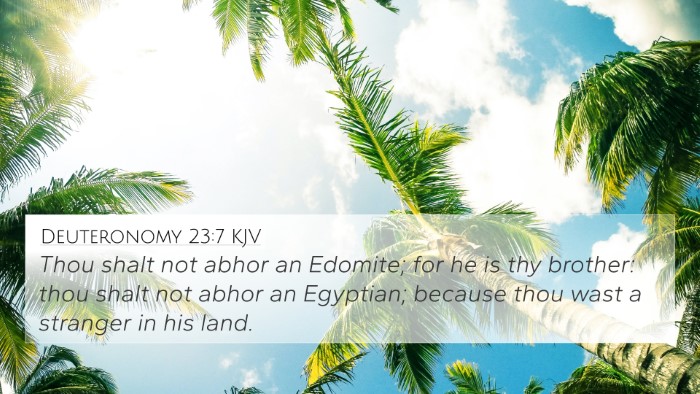
Deuteronomy 23:7 (KJV) »
Thou shalt not abhor an Edomite; for he is thy brother: thou shalt not abhor an Egyptian; because thou wast a stranger in his land.
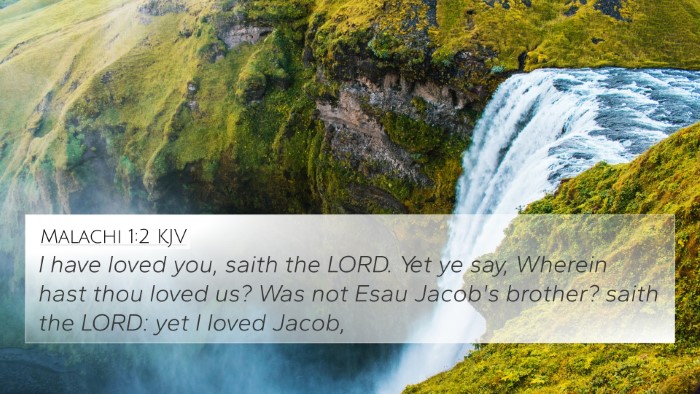
Malachi 1:2 (KJV) »
I have loved you, saith the LORD. Yet ye say, Wherein hast thou loved us? Was not Esau Jacob's brother? saith the LORD: yet I loved Jacob,
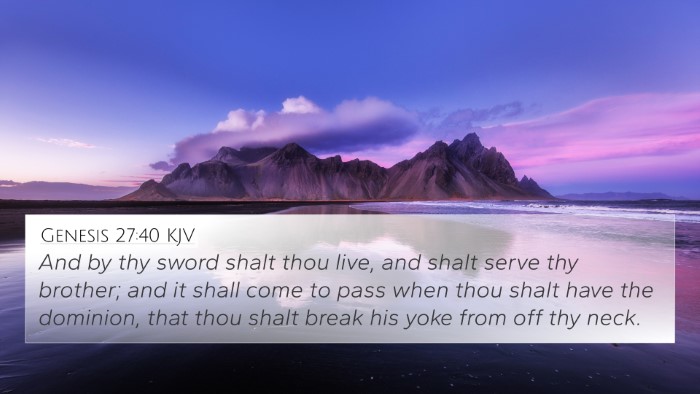
Genesis 27:40 (KJV) »
And by thy sword shalt thou live, and shalt serve thy brother; and it shall come to pass when thou shalt have the dominion, that thou shalt break his yoke from off thy neck.

Lamentations 4:21 (KJV) »
Rejoice and be glad, O daughter of Edom, that dwellest in the land of Uz; the cup also shall pass through unto thee: thou shalt be drunken, and shalt make thyself naked.

Isaiah 57:16 (KJV) »
For I will not contend for ever, neither will I be always wroth: for the spirit should fail before me, and the souls which I have made.
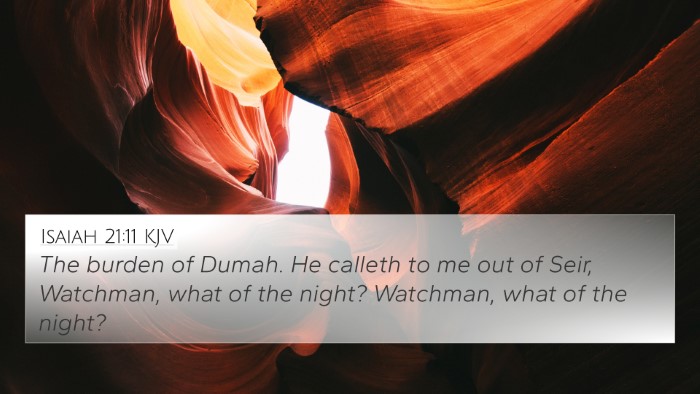
Isaiah 21:11 (KJV) »
The burden of Dumah. He calleth to me out of Seir, Watchman, what of the night? Watchman, what of the night?
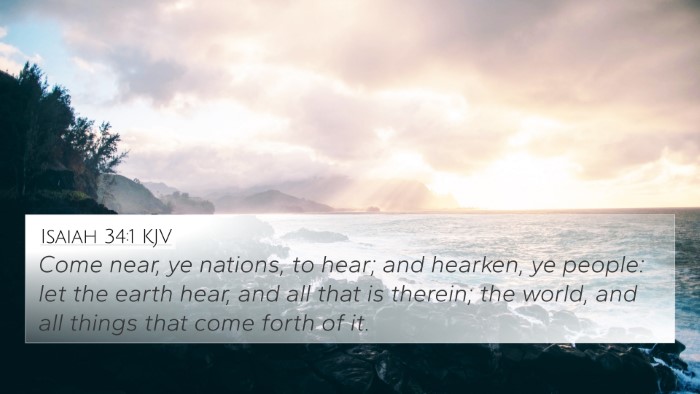
Isaiah 34:1 (KJV) »
Come near, ye nations, to hear; and hearken, ye people: let the earth hear, and all that is therein; the world, and all things that come forth of it.

Psalms 85:5 (KJV) »
Wilt thou be angry with us for ever? wilt thou draw out thine anger to all generations?
Amos 1:11 Verse Analysis and Similar Verses
Understanding Amos 1:11
Amos 1:11 states: "Thus saith the Lord; For three transgressions of Edom, and for four, I will not turn away the punishment thereof; because he did pursue his brother with the sword, and did cast off all pity, and his anger did tear perpetually, and he kept his wrath for ever."
Overview:
This verse serves as a prophetic declaration against Edom, highlighting their continuous hostility and violence towards their brother nation, Israel. The phrase "three transgressions, and for four" indicates a multitude of sins that have accumulated, prompting divine judgment.
Commentary Insights:
-
Matthew Henry:
Henry emphasizes the unrelenting nature of Edom's hostility. He notes that their actions were not only aggressive but driven by a persistent anger that refused to subside. Edom's lack of mercy and perpetual wrath ultimately invites God's judgment upon them.
-
Albert Barnes:
Barnes points out that Edom's transgressions included the cruel treatment of Israel, their own kin. The relentless pursuit with the sword signifies the profound betrayal felt by Israel, and God's unwavering stance against such injustices is highlighted. He stresses the significance of divine retribution according to the severity of each sin.
-
Adam Clarke:
Clarke interprets this verse in the context of God’s continual call towards justice. He notes how the sins of Edom illustrate a broader theme of divine accountability. Edom's perpetual anger and violent actions reflect not just a historical conflict, but a moral lesson on the consequences of hatred and violence.
Bible Verse Cross-References:
- Genesis 27:41: Edom's historical animosity toward Israel begins with Jacob and Esau.
- Obadiah 1:10-14: A prophetic declaration of God's judgment on Edom for their violence against Israel.
- Isaiah 34:5-6: The judgment and destruction of Edom are foretold as a result of their actions.
- Jeremiah 49:7: A warning regarding the wisdom of Edom and its impending doom for their transgressions.
- Ezekiel 25:12-14: The prophecy against Edom for their rejoicing over Israel's downfall.
- Psalm 137:7: A lament of Israel reflecting on Edom’s betrayal during Israel's exile.
- Malachi 1:3: God’s love for Israel juxtaposed against His hatred for Esau (Edom).
- Romans 12:19: New Testament reflection on vengeance and God's justice.
- Proverbs 14:31: A reminder about the treatment of the poor and the implications of oppression.
- Matthew 5:7: The Beatitudes that bless the merciful, contrasting Edom's actions.
Connections Between Bible Verses:
This verse links with several themes in both the Old and New Testaments, presenting a consistent narrative about divine justice, the repercussions of violence, and the moral obligations between neighboring nations. The interactions between Israel and Edom serve as a critical case study on God's justice.
Thematic Bible Verse Connections:
- Violence and Divine Judgment: Connecting Amos 1:11 with Obadiah and Isaiah underscores the consequences of violence.
- Family Betrayal: Genesis 27 and Psalm 137 emphasize the gravity of betrayal among kin, just as seen in Edom's actions.
- Mercy and Retribution: The Beatitudes in the New Testament serve as a foil to Edom's lack of compassion.
Conclusion:
In summary, Amos 1:11 serves as a crucial reminder of the inexorable nature of divine judgment against cruel actions. It illustrates not only the immediate context of Edom’s transgressions toward Israel but also offers theological insights applicable across both Testaments. The cross-references serve as a vital tool for deeper understanding and connection of themes throughout Scripture.
